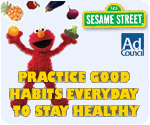 More images
Novel H1N1 Flu (Swine Flu)
More images
Novel H1N1 Flu (Swine Flu)
Site last updated August 7, 2009, 4:00 PM ET
U.S. Situation Update
U.S. Patient Visits Reported for Influenza-like Illness (ILI)

U.S. Influenza-like Illness (ILI) Reported by Regions

Reporting States and Territories* |
Hospitalized Cases | Deaths |
|---|---|---|
| 50 | 6,506 | 436 |
| *Includes the District of Columbia, American Samoa, Guam, Puerto Rico and the U.S. Virgin Islands. | ||
Vaccination Recommendations
With the new H1N1 virus continuing to cause illness, hospitalizations and deaths in the US during the normally flu-free summer months and some uncertainty and about what the upcoming flu season might bring, CDC's Advisory Committee on Immunization Practices has taken an important step in preparations for a voluntary novel H1N1 vaccination effort to counter a possibly severe upcoming flu season. On July 29, ACIP met to consider who should receive novel H1N1 vaccine when it becomes available.
More on the Situation
- Background
Learn about the emergence of the novel H1N1 virus in the United States and WHO's declaration of a novel H1N1 pandemic. - General Information
Basic information about H1N1 flu and you, including how to take care of a sick person and what to do if you get sick. - Facts and Figures
A summary of key novel H1N1 disease characteristics. - FluView
A Weekly Influenza Surveillance Report Prepared by the Influenza Division. - CDC Response
A summary of CDC activities - International Situation Update
The Southern Hemisphere is in the middle of its flu season, and we have reports of what is happening there - Guidance
- Press Updates
- Q & A: CDC's Online Reporting
CDC Advisors Make Recommendations for Use of Vaccine Against H1N1 Flu
What You Can Do to Stay Healthy
- Stay informed. This website will be updated regularly as information becomes available.
- Influenza is thought to spread mainly person-to-person through coughing or sneezing of infected people.
- Take everyday actions to stay healthy.
- Cover your nose and mouth with a tissue when you cough or sneeze. Throw the tissue in the trash after you use it.
- Wash your hands often with soap and water, especially after you cough or sneeze. Alcohol-based hands cleaners are also effective.
- Avoid touching your eyes, nose or mouth. Germs spread that way.
- Stay home if you get sick. CDC recommends that you stay home from work or school and limit contact with others to keep from infecting them.
- Follow public health advice regarding school closures, avoiding crowds and other social distancing measures.
- Find healthy ways to deal with stress and anxiety.
- Call 1-800-CDC-INFO for more information.
Get email updates
To receive daily email updates about this site, enter your email address:
Contact Us:
- Centers for Disease Control and Prevention
1600 Clifton Rd
Atlanta, GA 30333 - 800-CDC-INFO
(800-232-4636)
TTY: (888) 232-6348
24 Hours/Every Day - cdcinfo@cdc.gov





